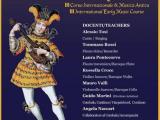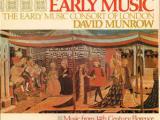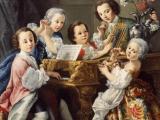A DISCO-val kapcsolatos témakörök, szócikkek készítése, javítása, bővítése és...
Régizene
Vashegyi György karmester, csembalóművész, a régizene kiemelkedő mai szakértője, előadója, a Zeneakadémia tanára a Purcell Kórus és Orfeo Zenekar alapítója és karmestere, a Magyar Művészeti Akadémia levelező tagja:
Sokan és sokféle választ adnak a kérdésre, hogy mi a régizene.
Az én véleményem erről elég radikális: szerintem minden zene „régizene”, ha már nem él a zeneszerző, hiszen közvetlenül már nem kérdezhetünk meg tőle az előadás szempontjából létfontosságú dolgokat, így kutatnunk kell.
Akit igazán komolyan foglalkoztatnak egy mű előadási kérdései, valószínűleg egyetért velem abban, hogy egy élő szerző nélküli, „halott” kotta hiába igyekszik szerzői szándék szerint lehetőleg precíz lenni, bizony sok minden így sem lesz egyértelmű.
De ettől függetlenül, a mai magyar zenei gyakorlatban „régizenén” elsősorban az 1800 előtt született, reneszánsz, barokk és klasszikus műveket értjük – köztük sok-sok felfedeznivalóval!
(Forrás: Beszélgetés Vashegyi György karmesterrel)
A tavasz első napján, J.S.Bach születésnapján ünnepeljük az Európai Régizene Napot. Ötödik éve, hogy ezen a napon a REMA Régizene Hálózat kezdeményezésében Európa szerte régizene koncertek, hangversenyek és szakmai előadások hangzanak el a régizene szellemében.
*******************************************************************
21st March – Bach and springtime!
The European Day of Early Music is held every year on 21st March, a day celebrating the beginning of spring, and the birthday of Early Music’s period probably most relevant and known composers: Johann Sebastian Bach (born on 21st March 1685, according to the Julian Calendar).
A living memorial to the European historical musical heritage
The European Day of Early Music is a celebration of more than a millennium of music, through concerts, events, and happenings taking place simultaneously across Europe.
The European Day of Early Music is a focal point for the promotion of the historical musical heritage in Europe. Former editions took place under the support and patronage of Mr Tibor Navracsics and Mrs. Androulla Vassiliou, respectively current and former European Commissioner for Culture, UNESCO, as well as artists Jordi Savall, William Christie and René Jacobs.
A living music history of 1000 years
Early music is a central part of the cultural heritage shared by Europeans, closely connected with other artistic expressions such as dance, theatre, and architecture. It spans more than 1000 years of music, written down or transmitted by oral tradition, from the Middle Ages to the end of the 18th century. While some of the composers of these eras are widely known, there is a large repertoire still to be re-discovered by today’s audiences. The European Day of Early Music aims to increase awareness of the music from the medieval, renaissance and baroque periods and bring it to the attention of a wider audience.



